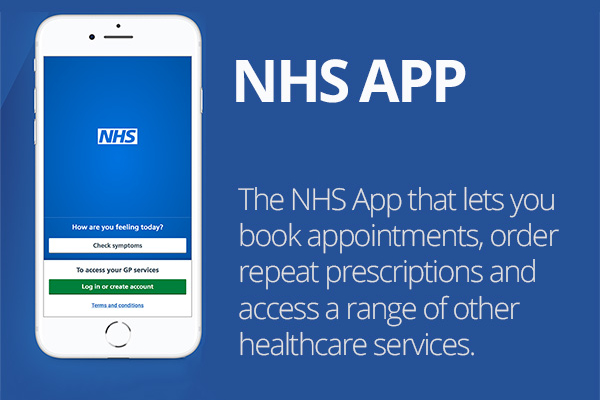Sorry, we're closed

What Happens During a Smear Test? Smear Test Anxiety – The Myths and Truths When to see a Doctor for a Cough Your Guide To Body Mass Index
High and Low Blood Pressure – Tips to Help Improve Blood Pressure
Blood pressure is the force by which blood is pumped from the heart and circulates through the arteries. An individual’s blood pressure is recorded in two numbers, with the top number being systolic blood pressure and the bottom number being diastolic blood pressure.
High and low blood pressure are two common conditions that can impact the overall health and well-being of an individual. While high blood pressure can lead to a range of serious health issues, including heart disease and stroke, low blood pressure can cause symptoms such as dizziness and fainting. However, there are various steps that individuals can take to improve their blood pressure levels and reduce their risk of developing associated health problems.
What should my blood pressure be?
A normal blood pressure reading is around 120/80mmHg. However, blood pressure levels can vary, and high or low blood pressure can pose health issues. That’s why it’s always important that you either get your blood pressure checked at the doctos, or if you have a home blood pressure monitoring kit, to note down your results and share them with a professional who can understand the reading properly.

What to do in low blood pressure
Low blood pressure, also known as hypotension, occurs when the force of blood flow through your arteries is lower than normal.
What’s considered low blood pressure?
A blood pressure reading of 90/60 mmHg or below is generally considered to be low. Symptoms of low blood pressure can include dizziness, lightheadedness, fainting, blurred vision, and fatigue. If you experience any of these symptoms, it’s important to take action to raise your blood pressure.
How to raise blood pressure
One way to do this is by increasing your fluid and salt intake, as this can help expand your blood volume. Other strategies include standing up slowly to avoid sudden drops in blood pressure, wearing compression stockings to help improve circulation, and engaging in regular exercise to help keep your blood vessels healthy. If your low blood pressure is caused by an underlying medical condition, your doctor may recommend additional treatments or medications to help manage your symptoms.
High blood pressure
High blood pressure, also known as hypertension, occurs when the force of blood against the walls of the arteries is consistently too high. This can cause damage to the arteries, as well as the heart, kidneys, and other organs.
What increases your risks of high blood pressure?
Risk factors for high blood pressure include a family history of the condition, being overweight or obese, smoking, stress, and a diet high in salt and processed foods.
How to reduce high blood pressure
When wondering how to lower high blood pressure naturally, individuals can make lifestyle changes such as:
- Eating a healthy diet: You can eat certain food to lower blood pressure, consuming a diet rich in fruits, vegetables, whole grains, and lean proteins can help lower blood pressure. Additionally, reducing salt intake can also help.
- Exercising regularly: Regular physical activity, such as walking, cycling, or swimming, can help lower blood pressure.
- Managing stress: Stress can contribute to high blood pressure, so finding ways to manage stress, such as meditation or deep breathing exercises, can be beneficial.
- Quitting smoking: Smoking can increase blood pressure and damage the arteries, so quitting smoking can help reduce the risk of developing high blood pressure.
- Taking prescribed medication: In some cases, medication may be necessary to help manage high blood pressure. It is important to follow a doctor’s instructions regarding medication use.
Common questions – Blood pressure FAQs
Does alcohol raise blood pressure?
Yes, alcohol consumption can raise blood pressure. Drinking alcohol can cause a temporary increase in blood pressure, particularly if you consume multiple drinks in a short period of time. This is because alcohol can cause your blood vessels to narrow, making it more difficult for blood to flow through them.
Additionally, alcohol can increase the production of hormones like adrenaline, which can cause your heart to beat faster and harder. Over time, chronic alcohol consumption can also lead to long-term increases in blood pressure, as well as damage to your heart and blood vessels. If you have high blood pressure, it’s important to limit your alcohol intake to no more than one drink per day for women or two drinks per day for men.
Can stress cause high blood pressure?
As mentioned above, stress can cause an individual to have higher blood pressure. When we experience stress, our bodies release hormones like adrenaline and cortisol that can temporarily raise our blood pressure. If we experience chronic stress, these hormones can continue to be released, leading to long-term increases in blood pressure. Additionally, when we are stressed, our bodies may be more likely to engage in unhealthy behaviours like overeating, drinking or smoking, all of which can contribute to high blood pressure.
Stress can also cause inflammation and damage to our blood vessels, making it more difficult for blood to flow through them and increasing the resistance to blood flow, which can also raise blood pressure.
Managing stress through mindful techniques can be important for preventing and managing high blood pressure, however, if you feel you need extra support managing your mental health then we offer plenty of information on CBT and other mental health clinics and self help resources to improve your mental wellbeing.
The Brooke Surgery also offer a free telephone counselling service for teenagers and young adults. If you need more information on the support you can get, please contact your GP.




